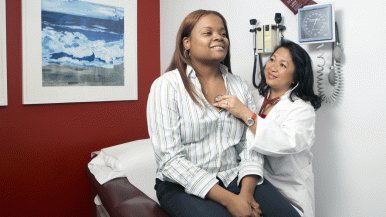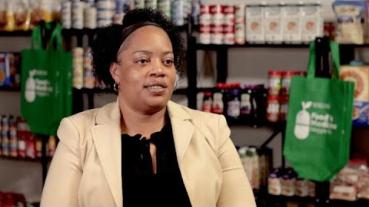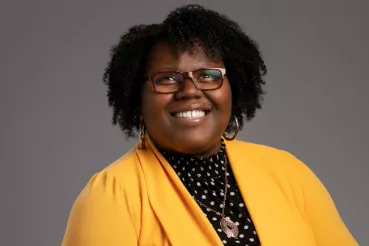Rush is developing an innovative data platform to improve the health of Chicagoans. Funded by a $7.5 million grant from the Searle Funds at the Chicago Community Trust, the project will fortify Rush’s data science infrastructure and create a research network to improve quality and equity in health care.
“We believe everyone should have the chance to be healthy,” said John Rich, MD, MPH, the Harrison I. Steans Director of the RUSH BMO Institute for Health Equity. “Yet, we know from medical literature that certain groups receive worse care and face barriers to achieving good health. This is why we are pulling together data to identify how and where this is happening and involve the right partners to help make a difference. Our goal is to make these data accessible to providers, researchers, educators and our community partners.”
Blending data and lived insight to confront Chicago’s health inequities
Rush will create a data warehouse for vast arrays of health informatics, location-mapped data, real-time information from home health devices and patients’ lived experiences that will help identify “hot zones” of chronic diseases and inspire solutions.
This database will encourage innovation across clinical areas by providing researchers with a safe environment to test emerging AI technologies and multivariable scenarios that reflect real-world circumstances in which diseases arise.
“The ability to aggregate and mobilize clinical data for our community is the key ’superpower’ needed to truly unlock the power and potential of AI,” said Jeff Gautney, senior vice president and chief information officer at Rush. “The work this grant is supporting will power new solutions and new therapies that improve the health of all our communities and serve as an example to others attempting the same work in their communities”
This approach will take into account differences in health care, physical and social environment, health behaviors, and other information that can be used to prevent and treat disease while continuing to build upon what is already in place, like remote blood pressure monitoring.
“This is a way for us to get a sense of which chronic conditions exist in certain groups, and we can do this while still protecting patient privacy,” said Juan C. Rojas, MD, a pulmonology and critical care physician who will direct Rush’s new health equity data and analytics studio. “Through the leadership of Rush and the RUSH BMO Institute for Health Equity and participation by other Chicago health systems, we will create a resource to look for and close the gaps for Chicagoans who have chronic diseases that directly lead to shorter life expectancy.”
The data commons will help health care providers know which conditions affect people within a specific census tract in Chicago. Currently the city of Chicago gets an estimate based on how many people respond to a survey, but not aggregate, count-level data.
“We know a lot of the life expectancy gap that exists in Chicago is related to chronic diseases, specifically cardiovascular conditions like cardiometabolic syndrome,” Rojas said. “This project will target more granular data, and with it, we can partner with organizations to make an impact in those specific areas.”
The goal is to bring together data from a range of different sources and leverage that data to not only improve health but to address health inequities.
“If we are able to bring those different things together, we can better understand the root cause of the problems,” Rich said. “There is a common misconception that these problems are caused by individual behavior, but when we can dig deeper into the data, we can understand the fundamental drivers of the death gap. And we will be able to break down silos across different hospitals.”
Rush will work to translate data so that patterns can easily be seen.
“In true partnership with the communities most affected, we can create meaning visualizations — not dots on a matrix — that help us understand the difference-makers in the community. And then use this data to address the drivers of poor health outcomes,” Rich said.
About the RUSH Campaign: Partnering for Solutions
This gift from the Searle Funds at the Chicago Community Trust is a clear example of how philanthropic partners are helping Rush solve challenges facing our communities and the field of health care. Rush University System for Health has publicly shared its bold plan — Without Boundaries: The RUSH Campaign — to eliminate the boundaries in health care preventing many from living the healthiest lives possible.
Rush aims to raise at least $750 million to advance all aspects of our mission. Rush plans to especially concentrate investment in six strategic priorities: health equity, innovation, bone and joint, cancer, education and workforce development, and neuroscience.




